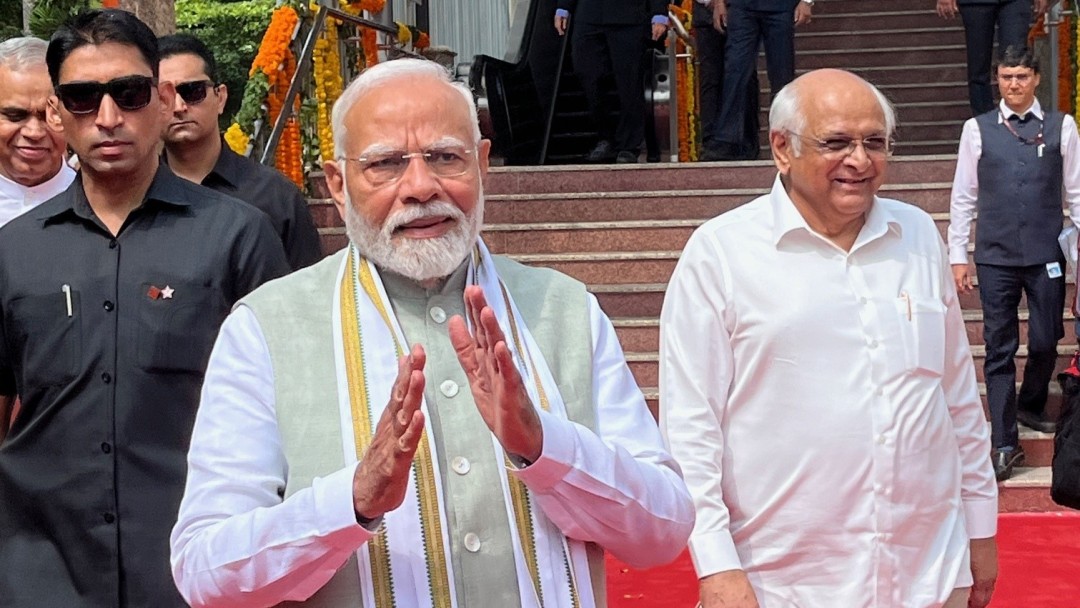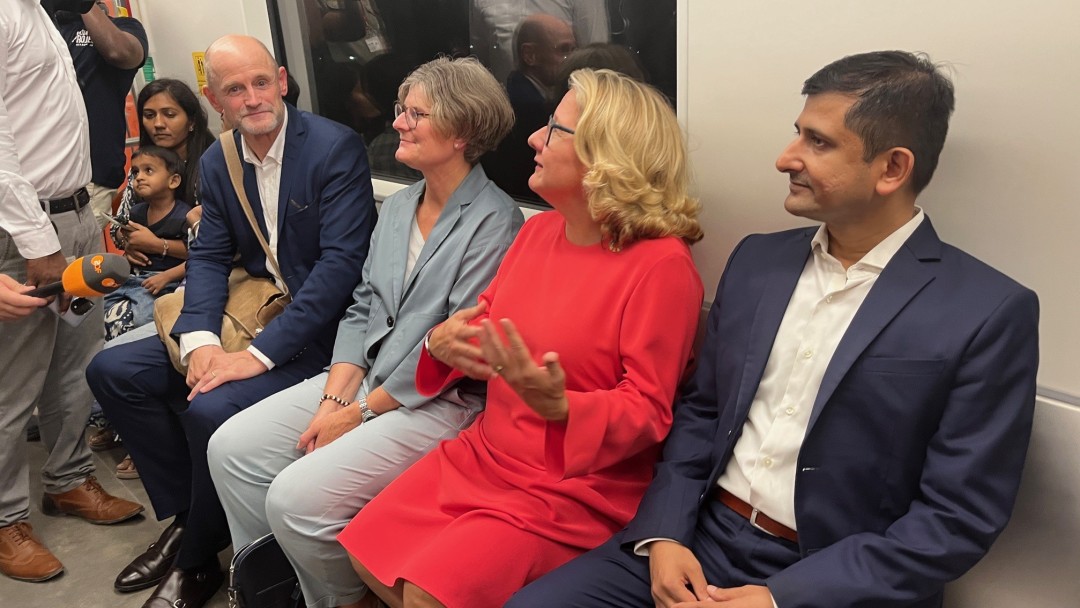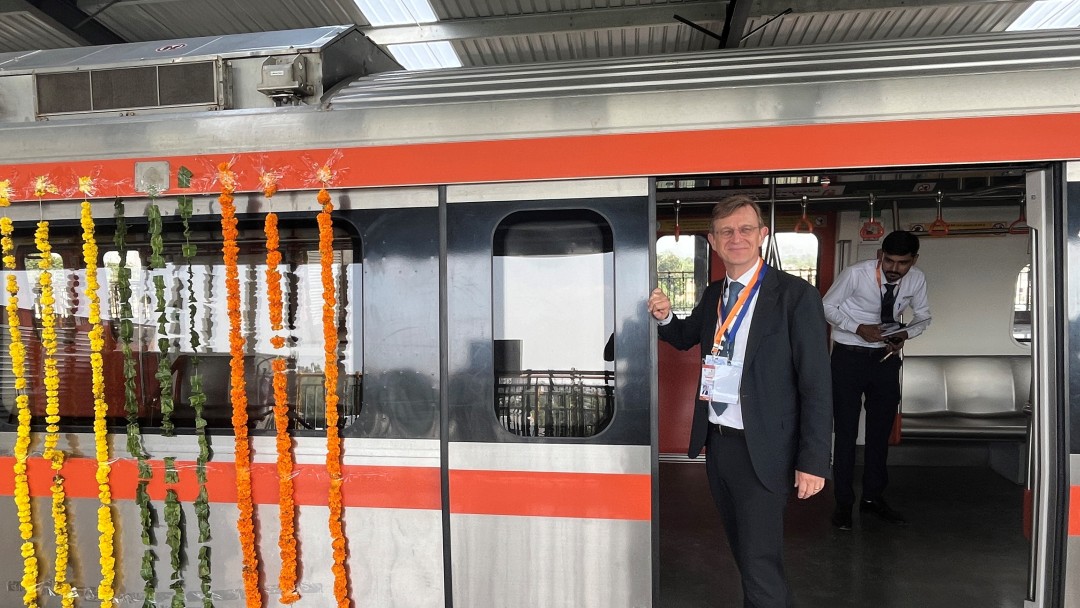News from 2024-09-17 / KfW Development Bank
Prime Minister Modi inaugurates metro line co-financed by KfW
Federal Minister Schulze obtained a first-hand impression of the new line

In the Indian state of Gujarat, a metro is currently being built between the economically strong metropolis of Ahmedabad and the state capital Gandhinagar. It creates an important link between the two cities, one of which forms the political centre and the other the economic centre of this state in western India. Previously, there was only one motorway to connect the two cities. The metro also helps to create a safe and sustainable mobility option to the increasingly dense traffic on the roads there.
On 16 September, Prime Minister Narendra Modi inaugurated a good 20 kilometres of the new metro. German Federal Minister Svenja Schulze, who was in Gujarat for a conference on mobilising investment in renewable energies, took the opportunity to get a first-hand impression of the metro. The new line is also being built with funding from Germany. Minister Schulze praised the project as follows: ‘German development cooperation here is a successful pioneer for economic cooperation and sustainable development. This commitment is an investment that pays off - for India, for Germany and for the world.’

KfW is supporting the Ahmedabad Metro on behalf of the German Federal Ministry for Economic Cooperation and Development with a subsidised loan of EUR 100 million. The German contribution comprises the procurement and commissioning of energy-efficient trains and system components, the construction of metro stations and infrastructure around the metro.
Another donor is the French development organisation Agence Française de Développement - AFD. Together, Germany and France are providing around half of the necessary funds, with the remainder coming from Indian sources.
The current phase is phase 2 of the metro construction; phase 1 already included 40 kilometres of metro within Ahmedabad. As in phase 1, the German company Siemens is again involved in the construction.
As a result, the public transport system as a clean and efficient means of mass transport is being expanded by another crucial part. Energy efficiency, passenger comfort and the integration of different modes of transport will also play a major role in phase 2. The so-called ‘last mile’ is a particular concern of the planners: for example, attention is being paid to good accessibility on foot, bike-sharing stations, cycle paths and bus stops in order to create a holistic transport concept at least within a radius of 500 metres around the new metro stations. Integrated ticketing has also been taken into account, making it an innovative and sustainable urban planning concept overall.

‘The project is a good example of an innovative and sustainable urban planning concept and can serve as a model for other metropolises in emerging market and developing countries,’ said Stephan Opitz, member of the Management Committee of KfW Development Bank, who also visited the site.
The new metro line will save around 50,000 tonnes of greenhouse gas emissions per year. It will also have a positive impact on people's health through better air quality and fewer car accidents. Economic impulses are also expected from the further integration of Ahmedabad and Gandhinagar. Above all, however, the metro will save many people the stress of traffic jams in congested streets. Many commuters already use the metro to get to work. It is expected that the construction of the new section will add up to 120,000 people a day. This figure is likely to increase significantly as the network grows.

Share page
To share the content of this page with your network, click on one of the icons below.
Note on data protection: When you share content, your personal data is transferred to the selected network.
Data protection
Alternatively, you can also copy the short link: https://www.kfw-entwicklungsbank.de/s/enzBWrMC.DIpA
Copy link Link copied